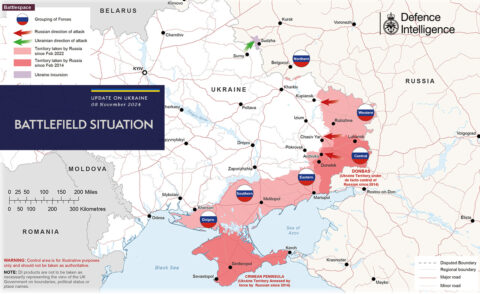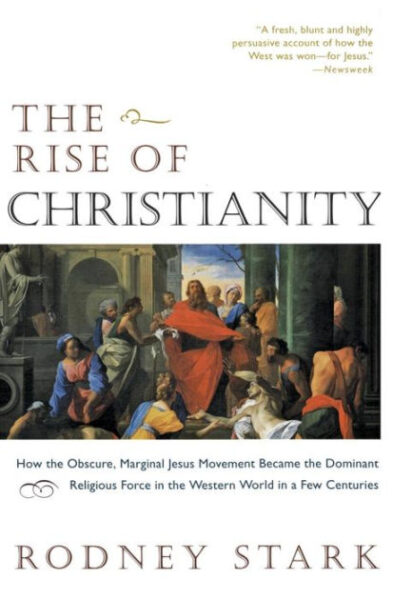At Postcards From Barsoom, John Carter outlines some of the perceived (and real) differences in the origin stories of the United States and Canada and how they’ve shaped the respective nations’ self-images:

The US had plans to invade Canada that were updated as recently as the 1930s (“War Plan Crimson”, a subset of the larger “War Plan Red” for conflict with the British Empire). Canada also had a plan for conflict with the US, although it fell far short of a full-blooded invasion to conquer the US, designated as “Defence Scheme No. 1”, developed in the early 1920s.
In perennial contrast to its tumultuous southern neighbour, Canada has the reputation of being an extremely boring country.
America’s seeds were planted by grim Puritans seeking a blank slate on which to inscribe the New Jerusalem, and by aristocratic cavaliers who wanted to live the good life while their slaves worked the plantations growing cash crops for the European drug trade. The seeds of America’s hat were planted by fur traders gathering raw materials for funny hats.
America was born in the bloody historical rupture of the Revolutionary War, casting off the yoke of monarchical tyranny in an idealistic struggle for liberty. Canada gained its independence by politely asking mummy dearest if it could be its own country, now, pretty please with some maple syrup on top.
America was split apart in a Civil War that shook the continent, drowning it in an ocean of blood over the question of whether the liberties on which it was founded ought to be extended as a matter of basic principle to the negro. Canada has never had a civil war, just a perennial, passive-aggressive verbal squabble over Quebec sovereignty.1
America’s western expansion was known for its ungovernable violence – cowboys, cattle rustlers, gunslingers, and Indian wars. Canada’s was careful, systematic, and peaceful – disciplined mounties, stout Ukrainian peasants, and equitable Indian treaties.
Once its conquest of the Western frontier was wrapped up, America burst onto the world stage as a vigorous imperial power, snatching islands from the Spanish Empire, crushing Japan and Germany beneath the spurred heel of its cowboy boot, and staring down the Soviet Union in the world’s longest high-stakes game of Texas Hold’Em. Canada, ever dutiful, did some stuff because the British asked nicely, and then they went home to play hockey.
America gave the world jazz music, rock and roll, and hip-hop; Canada contributed Celine Dion and Stan Rogers. America has Hollywood; Canada, the National Film Board and the Canadian Broadcasting Corporation. America dressed the world in blue jeans and leather jackets; Canadians, flannel and toques. America fattened the people with McDonald’s; Canada burnt their tongues with Tim Horton’s, eh.2
The national stereotypes and mythologies of the preceding paragraphs aren’t deceptive, per se. Stereotypes are always based in reality; national mythologies, as with any successful mythology, need to be true at some level in order to resonate with the nations that they’re intended to knit together. Of course, national mythologies usually leave a few things out, emphasizing or exaggerating some elements at the expense of others in the interests of telling a good story. Revisionists, malcontents, and subversives love to pick at the little blind spots and inconsistencies that result in order to spin their own anti-narratives, intended as a rule to dissolve rather than fortify national cohesion and will. Howard Zinn’s People’s History of the United States is a good example of this kind of thing, as is Nikole Hannah-Jones’ tendentious 1619 Project.
Probably the most immediately obvious difference between Americans and Canadians is that Americans don’t suffer from a permanent identity crisis. Demographic dilution due to decades of mass immigration notwithstanding, Americans by and large know who they are, implicitly, without having to flagellate themselves with endless introspective navel-gazing about what it means to be an American. The result of this is that most American media isn’t self-consciously “American”; there are exceptions, of course, such as the occasional patriotic war movie, but for the most part the stories Americans tell are just stories about people who happen to be American doing things that happen to be set in America. Except when the characters aren’t American at all, as in a historical epic set in ancient Rome, or aren’t set in America, as in a science fiction or fantasy movie. That basic American self-assurance in their identity means that Americans effortlessly possess the confidence to tell stories that aren’t about America or Americans at all, as a result of which Hollywood quietly swallowed the entire history of the human species … making it all American.
As Rammstein lamented, We’re All Living in Amerika …
Since we’re all living in Amerika, the basic background assumptions of political and cultural reality that we all operate in are American to their very core. Democracy is good, because reasons, and therefore even de facto dictators hold sham elections in order to pretend that they are “presidents” or “prime ministers” and not czars, emperors, kings, or warlords. Insofar as other countries compete with America, it’s by trying to be more American than the Americans: respecting human rights more; having freer markets; making Hollywood movies better than Hollywood can make them; playing heavy metal louder than boys from Houston can play it. It’s America’s world, and we’re all just along for the ride.
America’s hat, by contrast, is absolutely culturally paralyzed by its own self-consciousness … as a paradoxical result of which, its consciousness of itself has been almost obliterated.
Canada’s origin – the origin of Anglo-Canada, that is – was with the United Empire Loyalists who migrated into the harsh country of Upper Canada in the aftermath of the Revolutionary War. As their name implies, they defined themselves by their near-feudal loyalty to the British Crown. Where America was inspired by Enlightenment liberalism, Canada was founded on the basis of tradition and reaction – Canada explicitly rejected liberalism, offering the promise of “peace, order, and good government” in contrast to the American dream of “life, liberty, and the pursuit of happiness”.
1. Quebec very nearly left the country in a narrow 1995 referendum in which 49.5% of the province’s population voted to separate. It is widely believed in Anglo Canada that had the rest of the country been able to vote on the issue, Quebec would be its own country now.
2. Well actually a Brazilian investment firm has Timmies, but anyhow.








 Private William Penman,
Private William Penman, 

